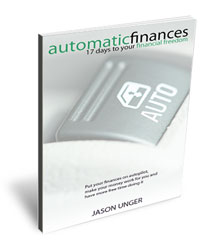
No one wants to be the victim of an online scam or security breach. But it’s going to happen to someone — and you definitely don’t want it to be you.
So what should you do to protect your money online?
Well, there’s a lot of things. In fact, there’s a whole, long article in Bloomberg Businessweek about it. Read it here.
But if there’s one thing that’s going to be the most effective at protecting your money online, it’s monitoring your accounts. So says Aviv Raff, chief technology officer at Seculert, which “specializes in helping companies detect and stop sophisticated cyber attacks.”
In the wake of recent megabreaches such as the one at JPMorgan Chase, where hackers compromised personal information of some 76 million households, or Home Depot, where the digital intruders got at about 56 million credit and debit card numbers, Raff says no one can afford to be complacent about digital safety. “Awareness is definitely rising, but there are people out there who still think it might not happen to them,” he says. “Everyone is at risk of being compromised.”
Raff says the best thing you can do to protect yourself is monitor your accounts closely. “I usually take time once a week or once every couple of weeks to go through the transactions just to make sure that I am familiar with them,” he says. He uses an app called BillGuard that collects all his account statements so he doesn’t have to log in to a lot of different sites to see them. BillGuard also alerts you when a store where you’ve shopped announces a data breach.
I’m not familiar with BillGuard, but it sounds like something worth checking out.
I agree with Raff — the best way to find out if there’s unusual activity on your accounts is to check them closely. With Automatic Finances, we’ve talked about only checking in once-in-a-while, but it’s likely time to evolve that position — especially when security is on everyone’s minds.



